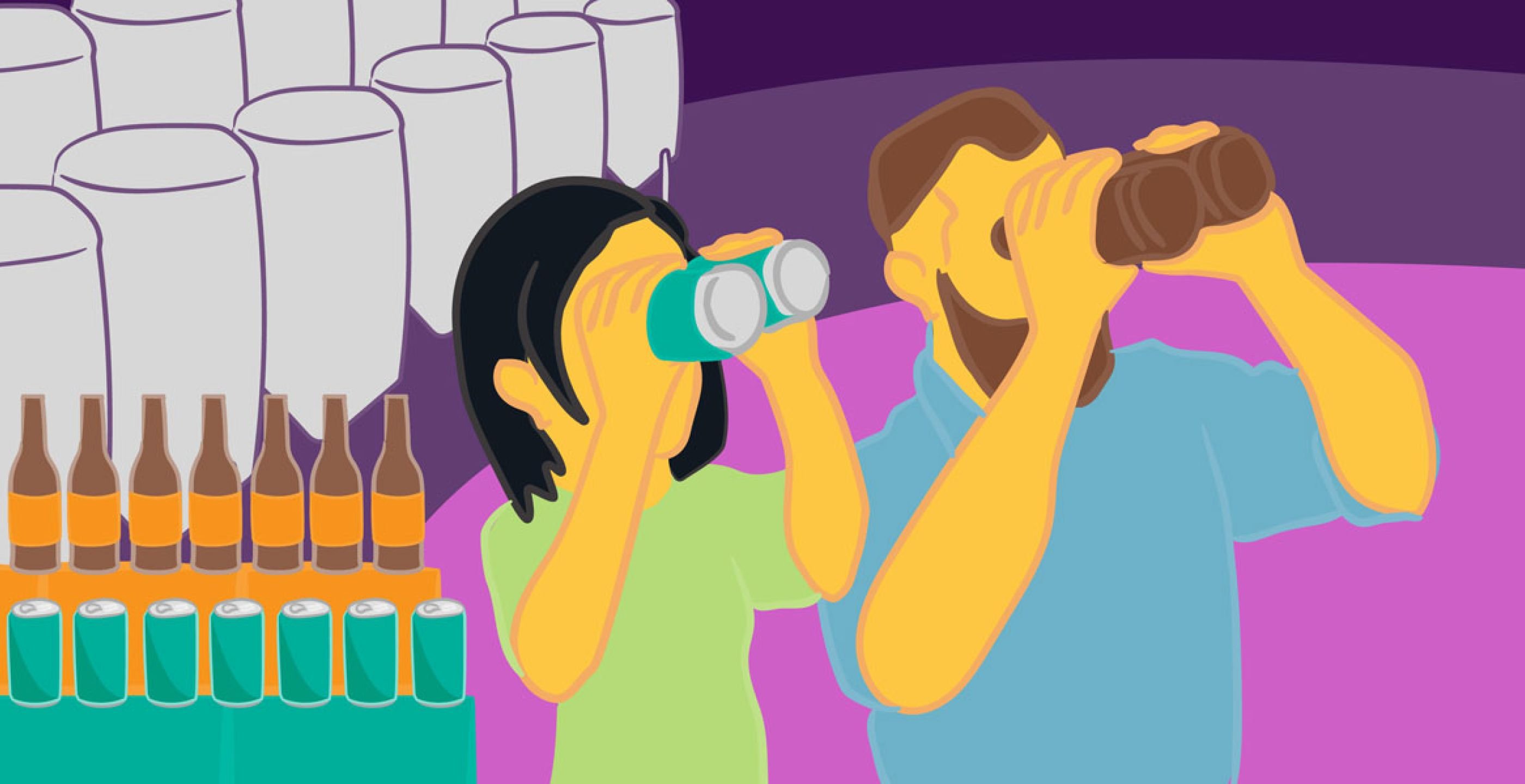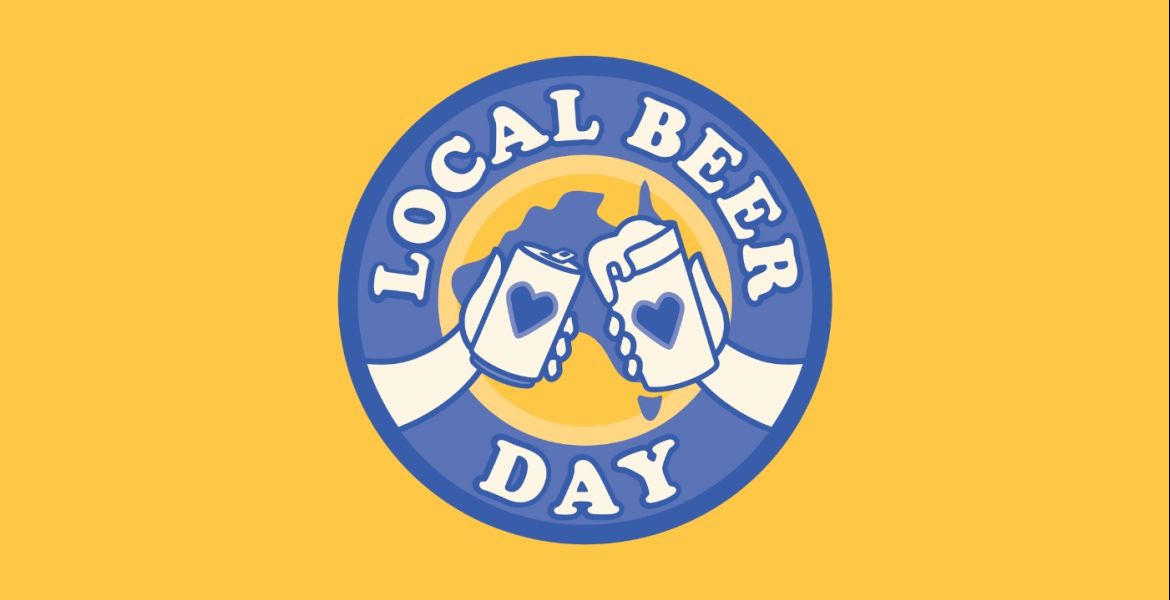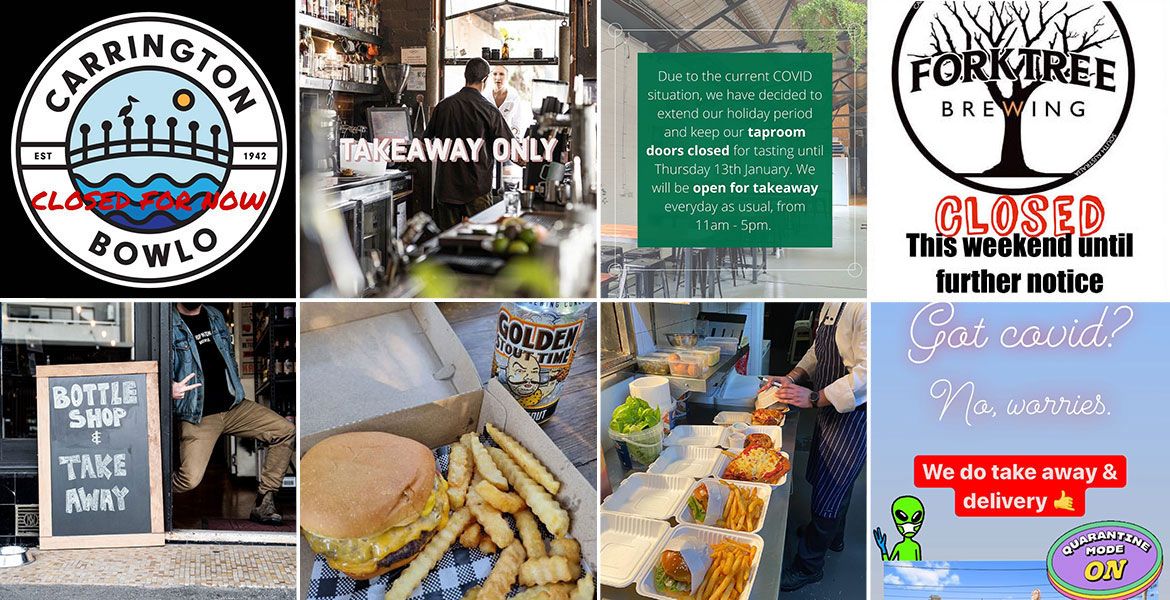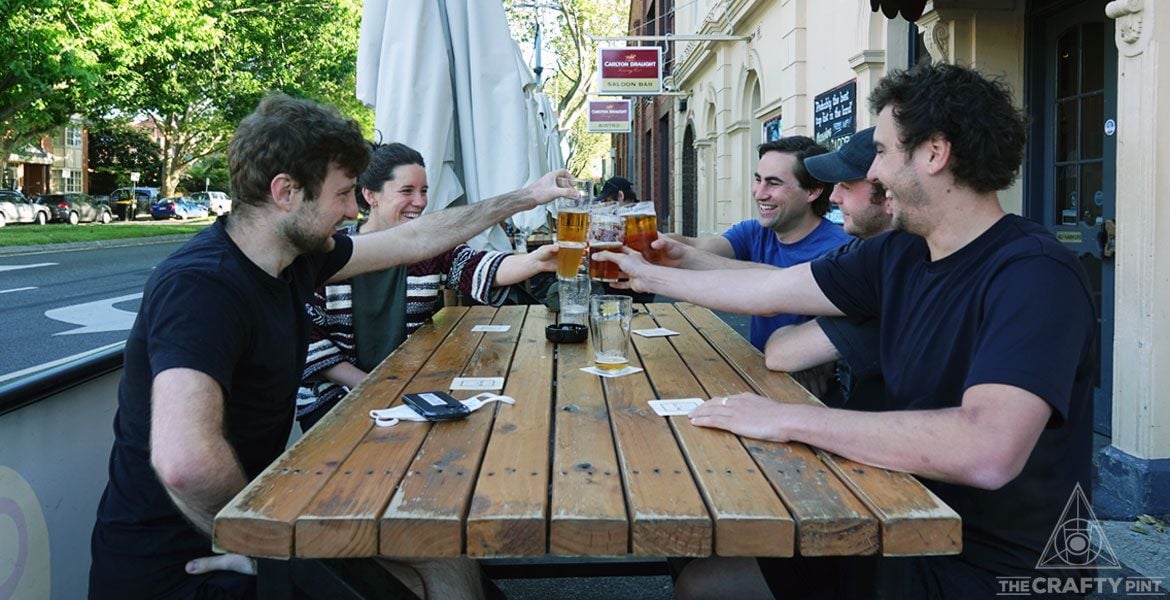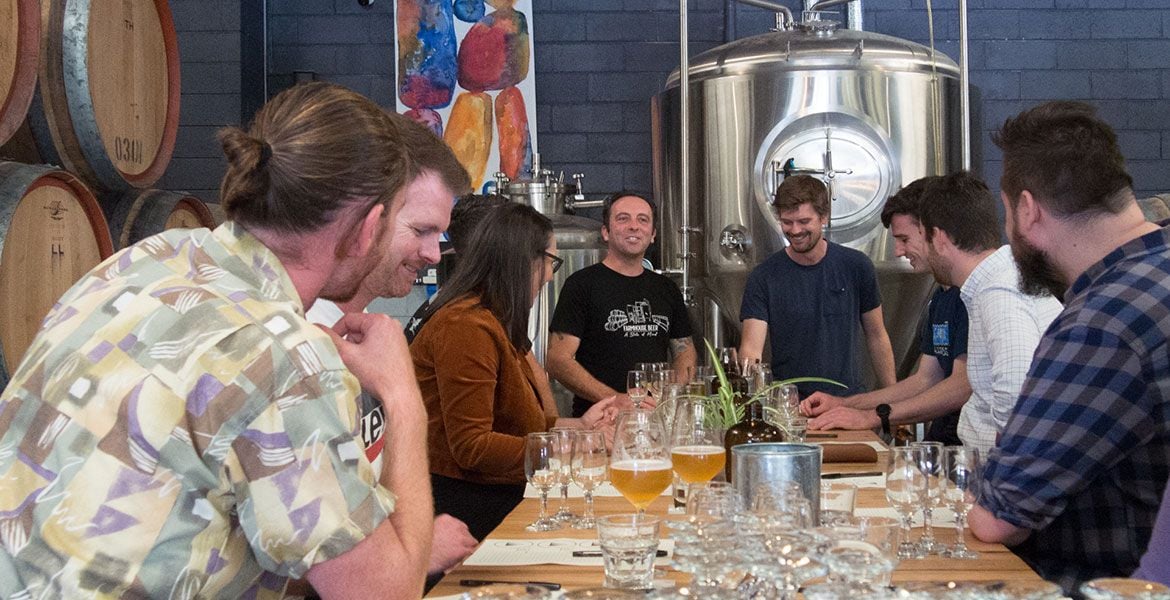On March 23, it will be a year since Australia was closed for business. It's been a remarkable year of heartbreaking lows and inspirational highs, of sad losses and unexpected gains.
In the beer industry, it's being marked with the second Keeping Local Alive Beer Swag Day, turning the dark day of 2020 into a celebration of this resilient industry's survival and revival.
Ahead of the one-year anniversary, we're taking an in-depth look at the impact of COVID on the wider beer community and the lasting changes created by the pandemic, starting today with the brewing side of the industry then focusing on hospitality and retail next week.
I can’t recall the exact date, but I remember the moment vividly. Brewers, reps and couriers drop beers off at my place on a daily basis, but this time things were different. And not in a good way.
If you’ve spent time in the company of Moon Dog co-founder Josh Uljans, you’ll have a good idea where much of the brewing company’s outlandish, ebullient character comes from. But this wasn’t the usual Josh; in his place was a broken man.
“We’ve gone from flying,” he said, holding his arm up, hand pointed skywards at 45 degrees to emphasise the trajectory his business had been on. “And now I feel like I’m hurtling towards the ground at a million miles an hour.”
The nationwide COVID shutdown hadn’t been announced yet, but was looming like the darkest of shadows. Restrictions were tightening and guidelines changing on a daily basis. The 725-capacity Moon Dog World a few kilometres away, which had been welcoming thousands of guests each weekend and enjoying seemingly blanket coverage in the mainstream media in a way no other craft brewery venue had, was already only allowed to serve a fraction of that number. And everyone knew what was coming, even if they didn’t want to believe it.
“We didn’t know what was ahead of us, but it was pretty scary. It was more questions than answers,” Josh says, looking back a year later.
“We were the majority of the way through a very large brewery build and quite heavily leveraged. We were coming off the amazing highs of a successful launch of Moon Dog World. It was pretty full on looking into the future and having absolutely no sense of what was going to happen or any belief that it was in your control.”
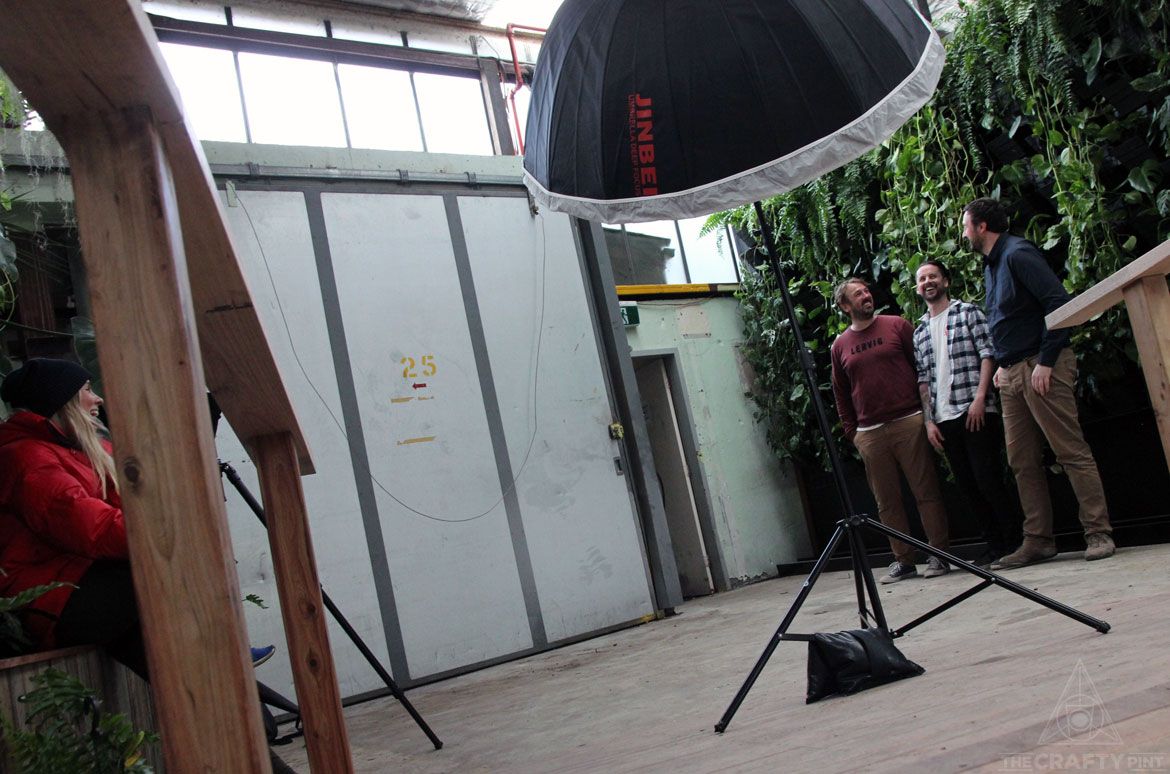
Within a few days of our roadside chat, their venues – like every one in Australia – were closed.
Nobody could say how long the shutdown would last, but common consensus in the beer and hospitality industries was that a September opening seemed like the best hope. As Independent Brewers Association (IBA) chair Pete Philip wrote in an update to members six days before the nationwide shutdown: “This virus represents an existential threat to our entire industry.”
Working in craft beer can be tough and challenging, but it's typically also rewarding and frequently fun. Not anymore.
“It was terrifying,” is how Chase Kauffman remembers the period. He was one of many reps stood down last March, with the gravity of his situation intensified by the fact he was an American in Australia on a working visa. This meant that, even once JobKeeper and JobSeeker arrived as saviours for many, he didn’t qualify for either and was unable to seek out one of a dwindling number of jobs.
“I could stay here where I didn’t have any income or I could go back to the States where I could find myself in the worse situation possible. It was an extreme reality. I wasn’t sleeping much in those first six weeks.”
Fast forward 12 months to today and, while some breweries have fallen by the wayside and others have changed ownership, the armageddon many feared hasn’t materialised. It’s been a roller-coaster nobody wanted to ride, for sure – that term, and “ups and downs” appeared frequently in interviews for this article – while few businesses are operating as they planned. The full extent of the pandemic’s impact is yet to be known, particularly in hospitality, yet the vast majority of breweries are still standing, still selling plenty of beer, and are looking forward with some confidence.
As we documented in our Postcards From The Edge series and elsewhere, businesses and individuals in all parts of the wider beer ecosystem adapted and innovated – and did so at remarkable speeds. Online stores were set up overnight, drive-thru bottleshops appeared, staff were repurposed as delivery drivers, entertainment went online as growler sales went through the roof, charities sprung into being to support those who found themselves out of work overnight, suddenly almost everyone was putting beer into cans.
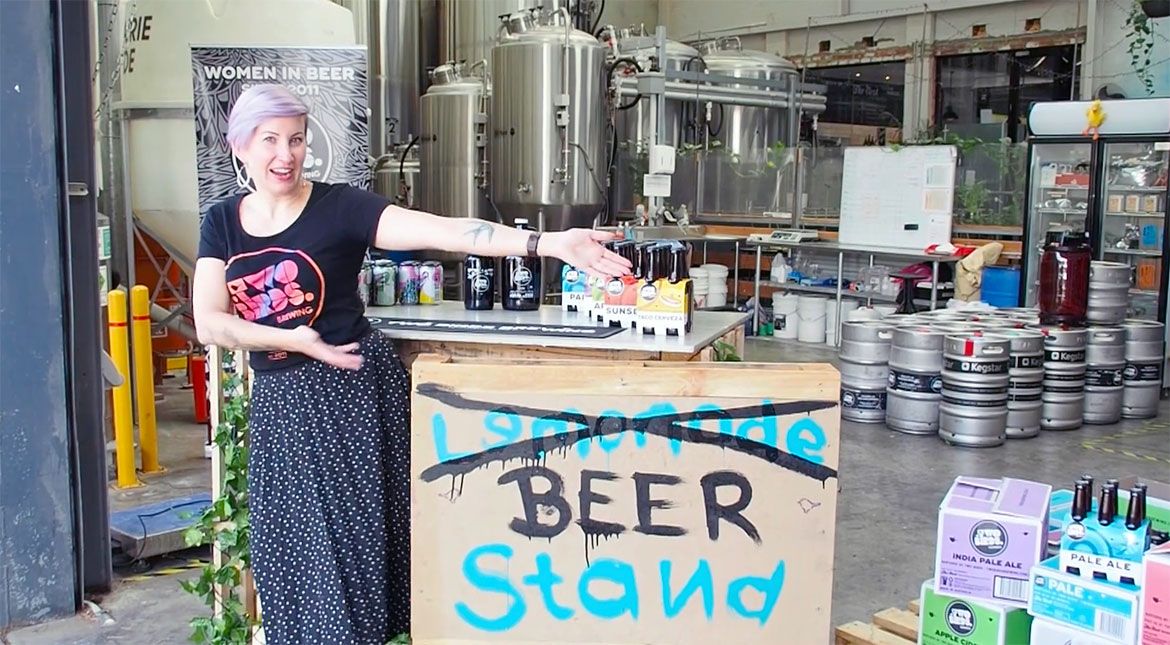
At the same time, borders closed, for people in Victoria there was a second, longer and harsher lockdown to come – one that was particularly taxing for those in Melbourne, the way we socialise and engage with each other has changed in ways that go against human nature, many have spent months out of work or have had to switch industries to keep paying bills, major events have come back but aren’t yet the way they were, and planning for the future now has to include the potential for another pandemic.
“At that point, we had just opened up in Subiaco, were pushing hard with the hospitality side of the business and were more consumer-facing,” Rocky Ridge founder Hamish Coates recalls.
The fast-growing brewery based in south west WA had visions for more hospitality ventures across Perth and the team was considering where to go beyond that, while their bar in Busselton, Darleen’s Taphouse, had fast become a cult favourite.
Yet, early on in the lockdown, the decision was taken to close Darleen’s permanently as COVID changed the trajectory of the business on its head.
“Now it’s all about the production side of things,” Hamish says. “The cellar door will always be there, but I don’t think I’ll ever go back into hospitality.”
He says the change has been “huge”, adding: “We’ve bunkered down at the brewery, doing everything we can to make our beer better and more efficient, concentrating on the sustainability side of the business. It was something which we’d always been doing but there were distractions.”
With the hindsight gained from the pandemic, he realises hospitality was among those distractions.
“We realised how much better we could run if we concentrated on one core area,” he says.
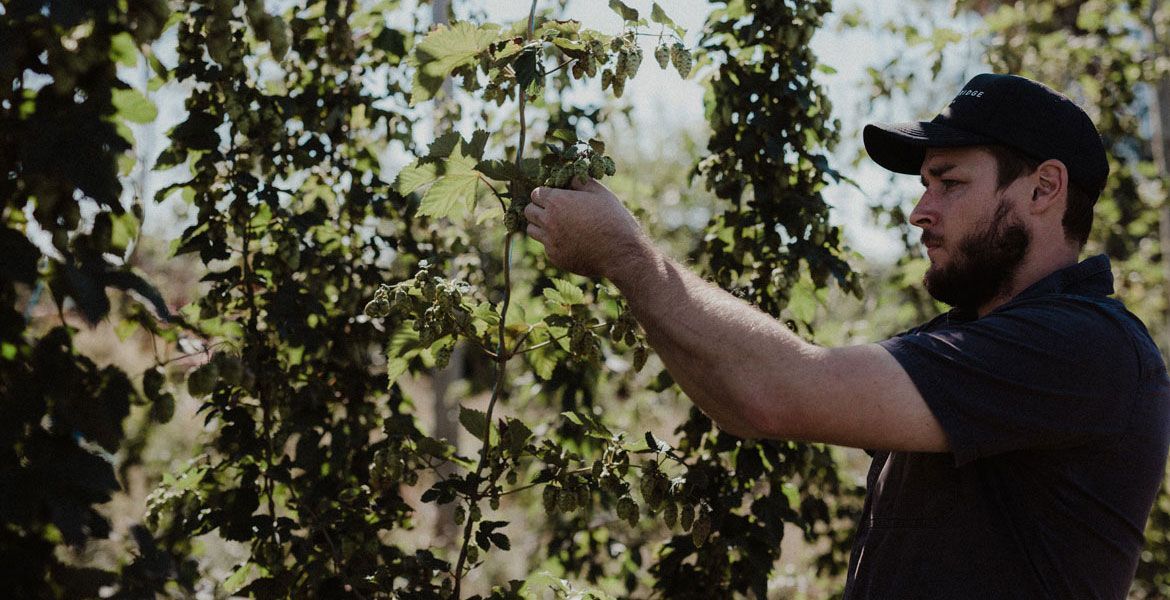
The situation was different at Moon Dog. Having pumped millions into the brewery and venue at Moon Dog World, there was little choice but to work out how to keep the hospitality side of the business going. They made a commitment to keep all permanent staff on – “Just because you’re in a kitchen and there's no food to sell doesn't mean we’re going to let you go,” Josh says – and the two new venues will still come to fruition, just over a longer timescale due to the challenges in accessing capital with a business plan temporarily shot to pieces.
But, as with Rocky Ridge, things had to change. After a fretful few weeks in March and April, they came up with a plan for survival and refocused.
“It was pretty hard to lose all of our draught volume,” Josh says. “All the stuff like takeaway and delivery was great but more of a thing of its time than an enduring part of the business. But online has been good and doesn't like it's going anywhere."
He says COVID gave them "the opportunity to upgrade certain parts of the business and focus more on doing things better rather than just keeping up with expansion."
While he'd never wish to go through an experience like the past year again, Josh believes what benefits can be found go beyond streamlining or refocusing within the business.
“You reset your terms of reference for the world and work within that,” he says. “Over time, you adjust to a level of uncertainty and it just becomes the norm.
“You then just become better at dealing with the shit you never thought you’d have to deal with. It’s made a lot of people dig deep and find a level of resilience and a capacity to deal with adversity they didn’t know they had.”
For Steph Howard, who works in marketing and sales support at Cryer Malt, adversity included spending seven months alone in her Melbourne apartment – a big change given her role usually involves extensive travel domestically and internationally, as well as attendance at major events. Then there was the uncertainty of not knowing when she’d be able to see her family and friends in New Zealand. On the work front, she was involved in transitioning much of the team to working from home, while strict measures had to be put in place at the company’s Melbourne lab to minimise any risk of being unable to carry out tests on their malt.
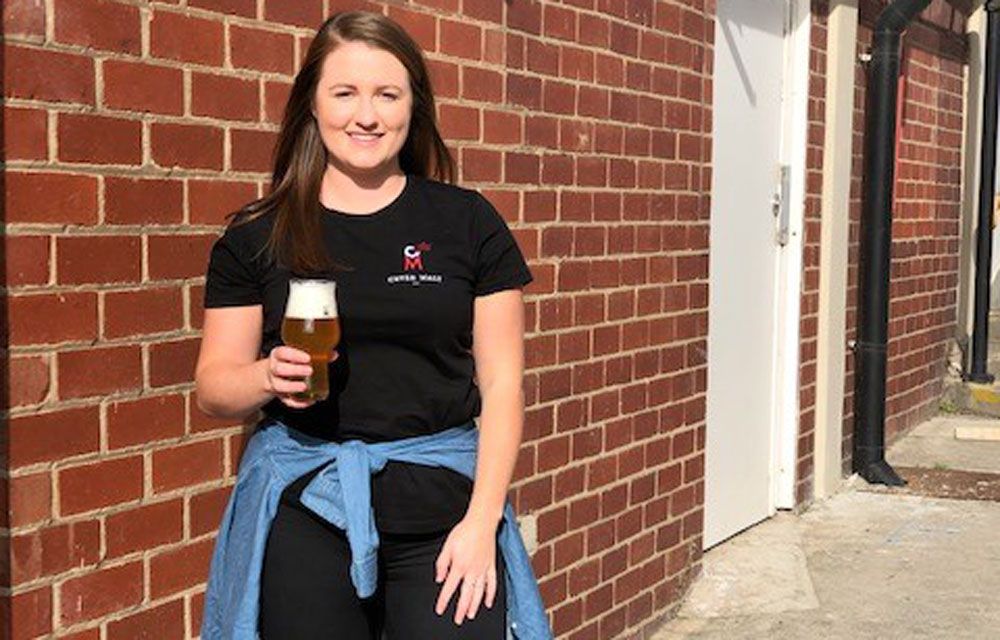
She says the ongoing “psychological trauma”, as Josh terms it, that we’re all likely to be dealing with for years to come only really became apparent when she was finally able to return to New Zealand.
“There were no restrictions at the time,” Steph says. “I went to my first beer event in Wellington and almost had an anxiety attack. The festival was packed. No one was wearing masks. It was just like pre-COVID times and I hadn't been in that situation for about a year.
“I just didn’t know quite how to deal with it. In supermarkets, I'd step away from people who got too close to me.”
Having returned to Melbourne this week – a return delayed by two weeks due to New Zealand’s most recent outbreak – the changes continue at work.
“You’ve got to have flexibility in everything you plan,” she says. “You’ve always got to think of the worst. I never thought we’d go through a global pandemic. Now we have to take that into account with every event that we plan.”
That need not be for the worse, however. The move to online went beyond breweries setting up web stores and pubs taking their trivia onto Facebook.
“Hop harvest is the biggest event of the year for Yakima Chief [the US hop grower represented in Australia by Cryer],” Steph says. “They have thousands of people come to town.”
Unable to do so in 2020, just like Tasmania-based Hop Products Australia (HPA) this month, they took their harvest online.
“The digital experience was really well executed. Breweries could access it wherever they were.”
As with HPA, who told us recently they're now selling more hops to Australian brewers than ever before, Steph says their order books indicate the local brewing industry is, for the most part, in rude health – the existential threat is seemingly a thing of the past.
IBA general manager Kylie Lethbridge has been in Canberra this week spruiking the credentials of the indie beer industry and, while she doesn’t want to undersell the challenges many breweries are still facing, particularly those in Victoria, she says many have weathered the last year better than expected.*
“Resilience is obvious coming out the end of it,” she says, citing a number of upcoming expansions and other investments on the horizon. “The industry not only survived but continues to thrive.
“Even our breweries in planning are pretty healthy and that’s another good indicator.”
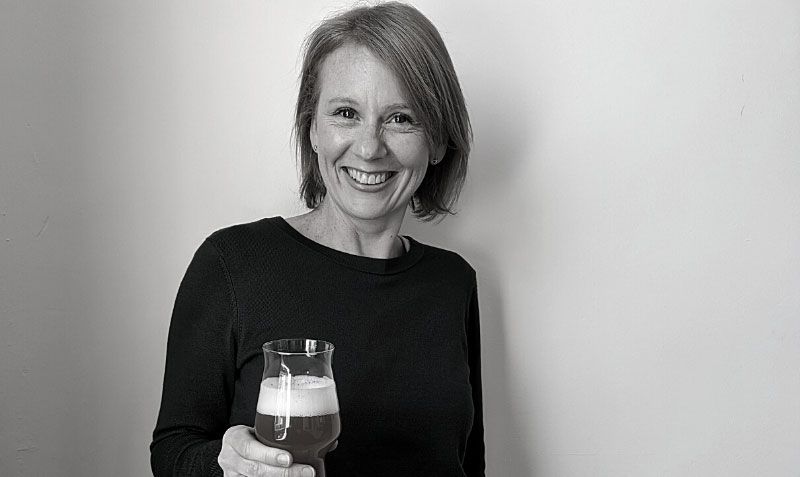
Kylie feels the IBA’s message has been warmly received by the nation’s politicians and hopes they see the value the industry brings to the economy.
“What we’re saying is, ‘Look at the potential for growth, we have the numbers now, and if you partner with us to keep investing and creating jobs, then you’re actually backing a winner,” she says.
“You have an industry that’s providing a tourism experience and supporting hospitality, which were some of the most hit industries.”
The positive vibe is echoed by Trent O’Connor, co-founder of Sanctus Brewing (pictured below), located in Clarence Valley, who points out the pandemic arrived on the back of bushfires and floods in the tourist region.
“COVID was just, ‘Really? Can it get any worse?'”
But it did come with a silver lining for a brewery that had only opened in October 2019. After experiencing busy summer months they quickly realised needed to expand.
“We’d worked out the bar, kitchen, shed and shed weren’t big enough and we didn’t have enough cool-room space, so we doubled down and expanded everything.”
Though they switched to takeaway and launched an online store, the young business wasn’t prepared for the shock of COVID and found themselves grateful for the support of their local community.
“We got a lot of local support in customers coming to the brewery for takeaway beer,” Trent says. “We haven’t slowed since we opened. It hasn’t stopped. We’ve been really lucky.”
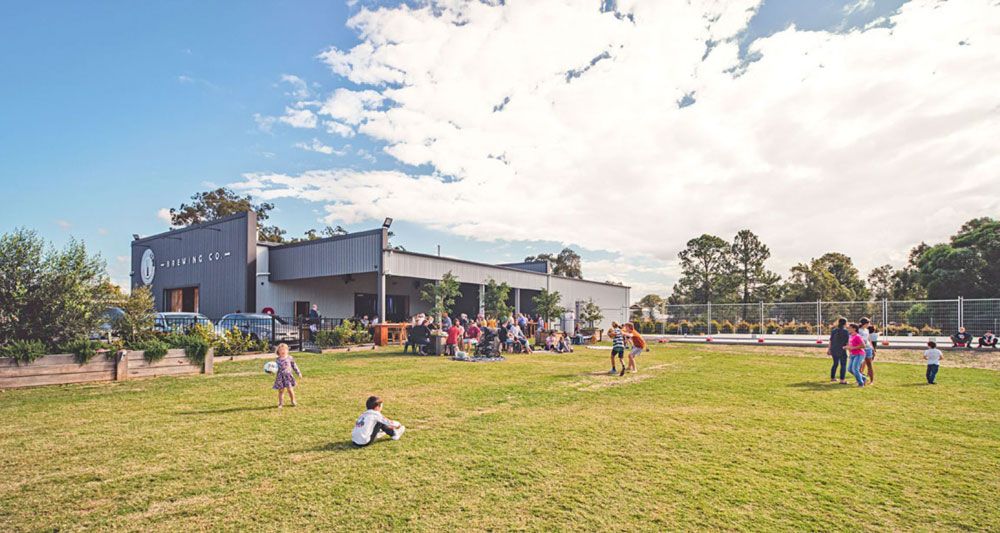
This is a common thread running through the stories from the beer world over the past year. Alongside the greater number of breweries now packaging their beers, this desire to support local businesses looks set to be a lasting outcome from the pandemic, one that will be celebrated by the second Keeping Local Alive Beer Swag Day on the anniversary of the lockdown.
While he believes the move towards local was already a growing trend – and not just in the beer world – Josh acknowledges his habits changed during the lockdowns.
“I shopped more locally and I shopped more indie-focused,” he says. “And I’m sure many, many people have done that.
“It goes hand in hand with the whole notion of what’s driving craft: people like something that has meaning to them, a story they can connect to, and what’s a better connection than being your neighbour or being part of a community?”
Such community connections helped Chase through the darkest times too. He found support on hand from his partner, flatmates, customers, fellow reps and staff at the bottleshops he’d supplied pre-COVID, and hopes the past year will have created greater respect for people in the industry, including the essential workers who kept coffees, beers and takeaways flowing during lockdown.
That said, when the situation was becoming dire for him and thousands in a similar situation, he wishes there had been a more organised effort, for example from a union body, to offer support and guidance to those who were stood down. He adds while many workers were stood down, countless others were stretched thin working while the ground was constantly shifting beneath them.
“I think a lot of businesses have realised how important employees are and who’s more valuable,” he says.
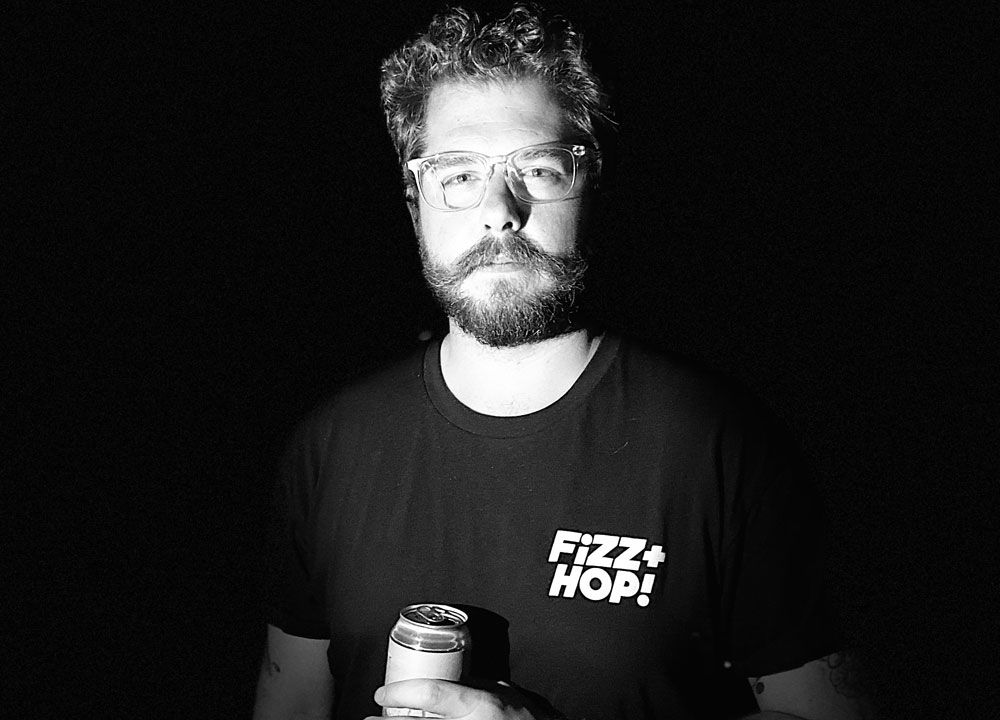
Just as he was grateful for the support he received, he believes it’s crucial member of the public realise the difference their behaviour can still make to their local businesses now.
“People created a wholesale program because of COVID, or put a bottleshop space in their brewery, so they had to spend this money just to keep afloat,” he says. “We shouldn’t be too quick to forget that these small breweries need our support.”
Chances are, many won’t forget – including the craft beer world’s new recruits. You hear stories from all corners of the country about people visiting their local brewery for the first time in 2020, people who weren’t previously interested in craft beer but wanted to help a struggling local business.
In WA, Hamish says it goes beyond brewery venues too: many new venues there have opened with nothing but independent Aussie beer on tap and he says even some “old bricks and mortar pubs” have abandoned contracts and turned their taps local.
“The consumer has been seeking out the breweries they know and love and also wanting to try the new little guy on the block, which is a huge difference to five or seven years ago when you had to fight to get people to try your beer,” he says.
“People aren’t turning their noses up to spending that little extra premium either, which is awesome.”
Major challenges remain, not least with government support drying up soon and particularly for the hospitality industry, which is the focus of part II of this mini-series. What's more, within craft there’s plenty of crossover between production and retail too.
“Probably more often than not, most craft breweries would be over-indexed into their hospitality business,” Josh says. “It’s also not an industry that’s got cash spilling out everywhere, so when you take 12 months of some pretty big hits it takes a lot to dig yourself out.”
And yet, 12 months on from the day nobody could have foreseen – and nobody would have wanted – the industry is still standing, still expanding. Battle-hardened, more focused, streamlined and diversified at the same time, selling plenty of beer, and riding a wave of local support, the picture is far rosier than anyone would have predicted as the walls were closing in.
“I’m pretty optimistic,” Hamish says. "We’ve been pretty lucky here: venues opened up pretty quickly and we didn’t have multiple lockdowns. The little [lockdown in WA earlier this year] was like a sigh of relief for hospitality to have a break.
“It’s been interesting because we’ve had to change the way we all operate, but inside the new normal it’s been a great place to be.”
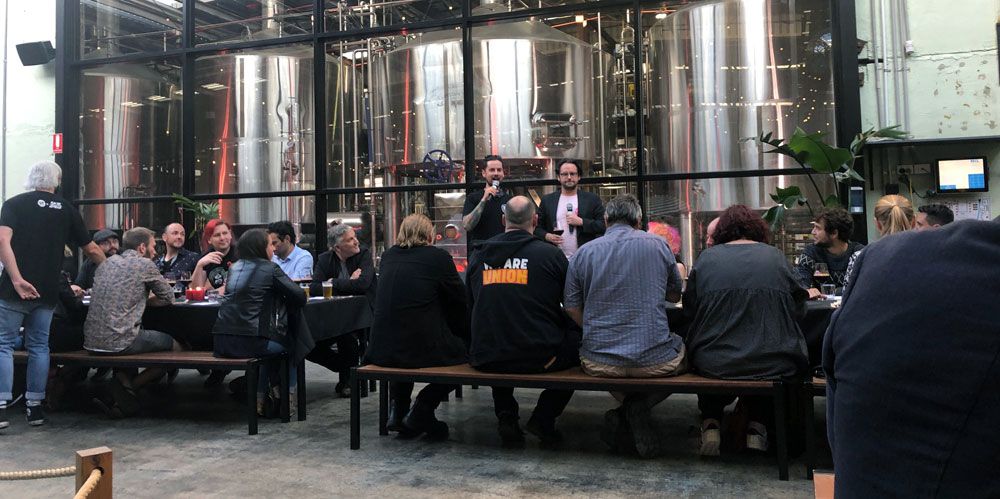
Almost 12 months on from our conversation in the street, I sat across from Josh at a degustation to mark the launch of their tenth Black Lung beer. People were sat shoulder to shoulder at long tables around the Moon Dog World lagoon, making new friends and seeing old ones for the first time in more than a year. Without wishing to sound trite, it felt like nature was healing.
“I’m feeling incredibly optimistic in terms of the roller-coaster we’ve been on,” Josh says. “There have been ups and downs but I feel overwhelmingly that people are very buoyant and things are looking up.
“People are excited and can see light at the end of the tunnel. Which is fucking lovely.”
Look out for part II on Monday, and get ready to celebrate local beer on Tuesday. Details on how you can get involved are here. Additional reporting by Will Ziebell.
*A few weeks after this article was published, the IBA released an independent report showing the contribution independent brewers make to the Australian economy. That report can be found here.



